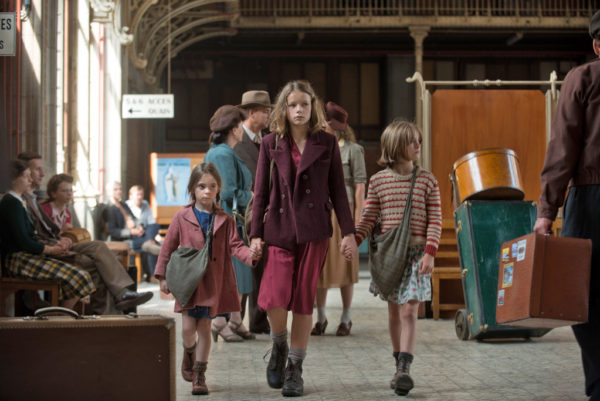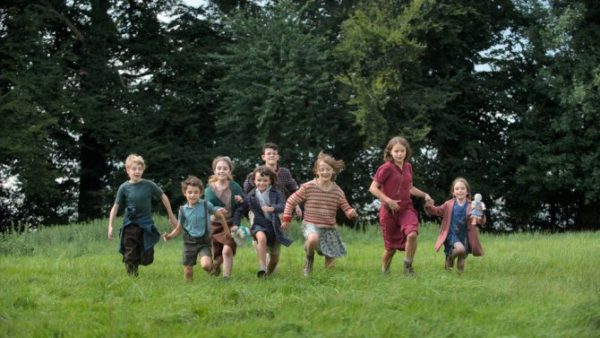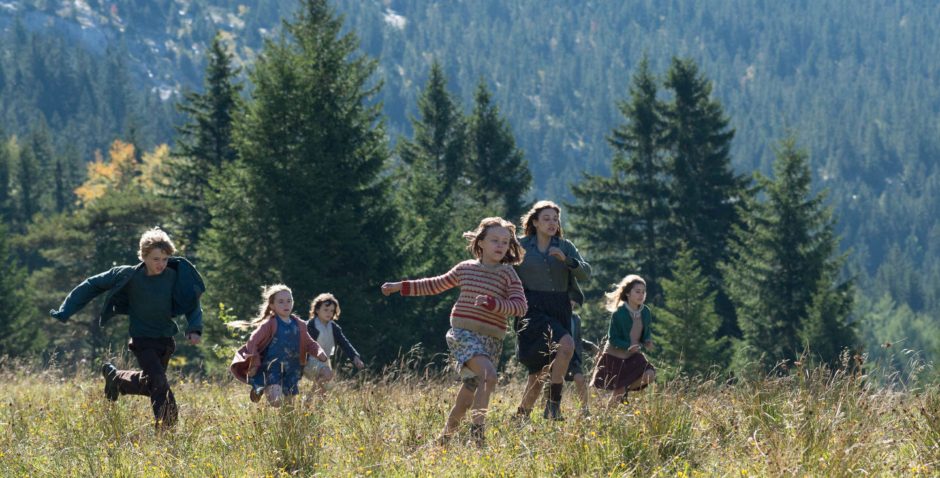Fanny Ben-Ami’s astonishing story of survival as a Jewish child in Nazi-occupied France has been brought to the screen by Lola Doillon in Fanny’s Journey. The movie, based on her harrowing experiences, will be presented by the Toronto Jewish Film Foundation’s Chai Tea series at the Cineplex Cinemas Empress Walk (5095 Yonge Street) on Sunday, February 19 at 1 p.m. and at 4 p.m.
Fanny and her two sisters, Erika and Georgette, endured fear and hardship during their ordeal, but they were among the fortunate Jewish children who survived the Nazi onslaught. As we know, roughly one million such children perished during the Holocaust.
Doillon’s heart-warming French-language film, with English subtitles, takes place mainly in 1943, when Germany’s ferocious war on European Jews was in full swing. In the opening scene, which is charged with undercurrents of uncertainty, Fanny’s mother bids goodbye to her three daughters, who are being sent to a Jewish foster home where presumably they will be safe.
Sensing danger, the tough but empathetic headmistress, Madame Forman (Cecile de France), informs Fanny (Léonie Souchaud) and her clingy younger sisters, Erika (Fantine Harduin) and Georgette (Juliane Lepoureau), that they will be moved to another institution in the safer Italian zone. Shortly after their hasty departure, the Germans stage a raid.

In her new home, Fanny, 13, befriends the teenaged cook, Elie (Victor Meutelet), an extrovert who pokes fun at the Germans, talks admiringly about the French resistance movement and secretly listens to radio broadcasts about the war.
With the fall of Benito Mussolini’s Italian government, Germany replaces Italy in the Italian zone, and Jews there are suddenly imperilled. Madame Forman tells her charges it’s time to leave again. Their destination is neutral Switzerland, which accepted a limited number of Jewish refugees during World War II. In preparation for the trip, she warns them to keep this information secret and not to use their real names in conversations with strangers. These are vital survival tips.
Madame Forman places eight children on board a train in the care of Elie. When he can no longer perform this task, Fanny, a serious and responsible person, is put in charge of them. This is the beginning of an arduous journey that will test their mettle.
En route to the Swiss frontier, they’re stopped by the collaborationist Vichy French police and questioned. “Are you sure you’re not Jewish?” one of the cops asks a boy. An older boy, unintimidated by the two policemen, stands up to them in a foolhardy but courageous confrontation.
The most gripping part of the film unfolds as the children perilously make their way toward Switzerland. In the mountains, hungry and thirsty, they stumble upon a deserted cabin and decamp there for the night. A few of the children suffer from stomach cramps after eating wild hazelnuts and berries.

In succession, they find a farmer willing to shelter them for the night, hide in the woods as a German patrol passes and enlist a smuggler to take them to the Swiss border. The tension mounts with each succeeding step toward freedom.
Fanny’s Journey, a workmanlike film, wrings impressive performances from the child actors. But above all, it reminds us of a black era when Jewish children were vulnerable and expendable.
